- Home
- Russell Blake
Requiem for the Assassin - 06 Page 2
Requiem for the Assassin - 06 Read online
Page 2
Alvarez made his way back toward the stage, where Carla had managed to push the other media flacks out of her way as her cameraman filmed the last speaker: the admiral, who was rising heavily from his seat, a few notes in his hand.
A loud pop exploded from Alvarez’s left and he spun, his heartbeat trip-hammering in his throat, hand on his pistol. A toddler’s laughing face met his glower as she reached for another balloon to pop, this one clutched by her tiny brother. Her mother pushed the little girl aside, hoping to avoid a meltdown when her daughter was denied her sibling’s treasure to destroy.
Alvarez took a few deep breaths. His discomfiture was unusual, and he made a mental note to avoid a third cup of coffee on the mornings of big events. Barrera rejoined him as the admiral delivered a terse speech commending the shipbuilders for their miraculous achievement, and rattled off a series of specifications that Alvarez knew were far below the ship’s actual capabilities.
Another round of applause greeted the end of his statements, and then it was time for the champagne. The admiral waddled at the head of an entourage of dignitaries to where an honor guard stood by the ship’s bow. An ensign presented him with a colorfully festooned bottle attached to a ribbon, and after turning to the crowd and making another short statement, the admiral loosed the bottle in a swinging arc.
The glass shattered against the steel hull, and the gathering cheered. The navy band struck up a rousing song, the governor and mayor shook hands with the admiral, and Alvarez relaxed. The dignitaries would be whisked away from the area in the armored SUVs in which they’d arrived, and then that most dangerous moment – where a cartel assassin could make a play for the governor or mayor – would be over, the only remaining concern mundane crowd control.
Alvarez oversaw leading the men back to their vehicles and was standing with the admiral when Carla’s voice called out. The admiral leaned into Alvarez without acknowledging her and spoke softly. “I’ll be taking a boat out of here. Some of my friends are out on that yacht, and I’ve been asked to lunch,” he said, nodding in the direction of a three-hundred-foot white behemoth near the harbor mouth – the ostentatious and well-known floating plaything of a telecommunications mogul who was one of the wealthiest men in Mexico.
“Very well, sir.”
“I arranged for a tender to pick me up. Just keep the jackals off the pier while I make my escape, Captain,” the admiral said and then turned and ambled down the length of the jetty to where a Sea Ray 44 express cruiser waited, its exhausts burbling, the crew standing by the cleats in preparation for his arrival.
Alvarez watched him approach the boat, and then his attention was pulled away by the sound of Carla’s voice arguing with two of the guards behind him.
“It’s imperative that I speak to him, damn it,” she repeated, as if by sheer force of will she could stare down the Mexican Navy.
Alvarez had to hand it to her – the combination of her imperious tone, absolute self-assurance, and complete absence of shame might have worked on him only a few short years before, but now she didn’t stand a chance.
“Miss Vega, you’ve been told the admiral isn’t available. Let’s keep things civil, shall we?” he said as he turned, a placid smile affixed on his face.
She glared daggers through him, but it had no effect, and she knew when she saw the resolute look in his eyes that she was beaten.
The Sea Ray’s engines revved, and the boat pulled from the dock, trailing a wake of white froth. Vega’s shoulders sagged as she conceded defeat. Alvarez was just about to offer a conciliatory platitude when a look of shock flitted across her face, and she pointed over Alvarez’s shoulder to where a helicopter was racing across the sky toward the departing admiral – a gunman leaning out the open door holding a grenade launcher.
Chapter 2
“Shit.” The gunman in the rear of the helicopter cursed as the first projectile missed the Sea Ray’s stern by a few feet. He loaded another grenade into the M320 launcher and tried again, but with the same result – a near miss. “This damned thing is worthless,” he said, tossing the launcher aside in disgust and shouldering his assault rifle. His companion in the copilot’s seat did the same, and the pilot kept the aircraft behind the boat as they opened fire, strafing the topsides with high-velocity rounds.
The Sea Ray’s captain reacted quickly by firewalling the throttles, and the boat launched forward as rounds tore through the fiberglass. The admiral ducked below deck into the illusory safety of the cabin.
The first gunman exhausted his magazine, ejected it, and slapped a new one in place to resume his merciless onslaught. Spent brass shell casings littered the cockpit as the copilot emptied his rifle, and he was reaching for another magazine when the pilot swore.
“Damn. We’ve got company,” he hissed and banked the bird south. The first gunman looked at where the pilot was pointing; to their right, a Mexican Navy Messerschmitt-Bölkow-Blohm Bo 105 helicopter was bearing down on them.
“I thought we were guaranteed no pursuit!” the gunman yelled.
“We were. But that was the police. This is navy.”
“Can you outrun him?” the copilot asked in a strained voice.
“That thing has eighty knots top end on us. Best we can hope to do is lose him in the mountains south of the city. Better strap in – it’s going to get ugly,” the pilot warned and plunged the helicopter into a steep dive at the buildings south of the base.
“What the hell are you doing?” the gunman barked.
“We don’t want to get shot down, do we? If we’re right above the rooftops in populated areas, they wouldn’t dare shoot. Otherwise, we’re the piñata and they’re the stick.”
They dropped eight stories in as many seconds, and the men’s stomachs were in their throats by the time they leveled off. The pilot pushed the speed to the limit. The helicopter raced over the roofs of the two- and three-story buildings in a blur, but when the gunman checked behind them, he could see the navy bird gaining on them.
“How long until we’re in the hills?” he yelled over the roar of the engine.
“Maybe another minute or two.”
“Then what?”
“Then we run up the canyons until we spot a good place to set down, hoping that the navy pilot isn’t as crazy a bastard as I am.”
The gunman snapped a full magazine in place. “I’m going to give them something to think about.”
The pilot shrugged. “Can’t hurt. Maybe if they have to fly through lead, it’ll make them think twice.” He tacked further east as the green of the hills rose before them, the sun crimson over the crests as it burned through a layer of airborne dust and pollution.
The assault rifle jackhammered as the gunman emptied a thirty-round box magazine in two seconds and then loaded a fresh one. The navy helicopter gave no indication of slowing as it continued to gain on them, its malevolent snout locked on their tail rotor like a hunting dog on a game bird, and the pilot jerked the stick and turned the bird south again, keeping it over populated areas in case the urge to return fire was too much for the navy helo.
“I thought we were headed for the hills,” the copilot said, eyes bright with borderline panic.
“We need an area with canyons and ravines. That rolling stuff’s not going to do it for us.”
“Then where?”
“Down by the country club. San Carlos Canyon.”
The helicopter began to vibrate as it reached and then exceeded its maximum advisable speed, but the pilot held it steady, roaring only a few yards over the power poles and roof tanks of the neighborhood below. The gunman had exhausted his ammunition and was now sitting with his eyes closed, lips moving in silent prayer through the deafening pounding of the rotors, the paradox of a hired killer begging a benign deity for mercy lost on him.
Glass shattered inward as the windshield collided with a big bird – a turkey buzzard, every bit of eight or nine pounds, the rough equivalent of slamming into a bowling ball at the helicopter’s speed
. The pilot screamed as the aircraft dipped, but he was able to steady its flight seconds before it crashed into the ground. His sunglasses shielded his eyes, but beads of blood bubbled from his face where small chunks of glass had punctured his skin before being blown into the void by the howling wind.
“Gah…” he exclaimed and glanced next to him, where the copilot’s head lolled to the side at an unnatural angle.
“Are you all right?” the gunman screamed at the pilot.
“I…I think so. Look. There’s the canyon.”
“Damn. We might make it after all.”
~ ~ ~
The naval pilot nodded as he received clearance in his headset to fire on the enemy helicopter and gave the copilot a thumbs-up. “You see him hit the buzzard? Stupid prick.”
“Time to put him out of his misery.” The copilot flipped up the cover on the armament control and zeroed in on the helicopter as it flew over the last of the houses and made for the canyon. The lock indicator blinked and beeped at him, and he released a Hellfire missile with a whoosh.
The damaged helicopter never had a chance. A split second after the missile struck, it exploded in a white-hot supernova, vaporizing the cabin and sending what was left of the craft spinning crazily toward the granite below.
~ ~ ~
A CB-90 fast assault craft pulled alongside the Sea Ray, which was floating in a shambles near the breakwater. The hail of bullets had shattered the decks and riddled the topsides, and two of the crew lay dead in sticky pools of drying blood. The captain clutched his abdomen where a round had caught him. The pungent smell of diesel fuel drifted from the bilge, and the first two seamen who made it aboard from the naval vessel exchange worried looks.
“Shut the engines down,” the first one ordered, and the captain nodded but slumped to the deck before he could oblige. The sailor pushed past him and turned the keys.
The rumble of the engines died, leaving only the dim hum of the blower fans.
“Admiral, are you down there?” the second seaman called. “It’s safe. The attack’s over, sir.”
The first sailor peered into the cabin. Beams of sunlight pierced the gloom from dozens of bullet holes in the deck. A rustle followed by a groan emanated from the depths, and then the admiral moved into view, his jacket stained crimson, his color gray. He tried to make it up the few stairs to the deck, but gravity proved too much, and he fell backward, clutching his chest, his eyes rolling into his head as he passed out even before he hit the carpeted floor behind him.
Chapter 3
Guadalajara, Mexico
“Imbeciles.” The speaker was a thin, dark-haired man in his early fifties with leporine features, whose intelligent mahogany eyes darted restlessly from object to object. “Not only do they manage to blow the whole thing, but they do so in a spectacularly visible manner.” He pushed his coffee cup aside in disgust, his color rising as he spoke. A light wind from the mountains blew across the veranda, freshening the air, which was heavy with the smell of grass and horses from the nearby barn and adjacent field.
His companion was his physical opposite: thirties, muscular, fair complexion, hair the color of wet sand, lucid blue eyes that seemed ever at peace as he gazed across the pasture at the corral, where several ranch hands were mending one of the outbuildings. The younger man took a contemplative sip of his coffee and nodded wordlessly, having nothing to add to the discussion.
The dark-haired man’s eyes narrowed as he checked the time on his white gold Rolex President. “And now he’s forewarned. So what was already a difficult target just got impossible because of these bumbling cretins. Christ. If they weren’t dead, I’d kill them myself with my bare hands.” He frowned and shook his head. “For all the sloppy histrionics, our problem remains. And we’re no closer to a solution than before.”
“It’s unfortunate, to be sure.”
“That’s the understatement of the year. How did we wind up with these, these…buffoons? Remind me why we hired them?”
The younger man turned his attention to his host, his expression flat, and fixed him with a neutral gaze. “The cartels are the go-to people for this kind of thing.”
“Apparently they’re the go-to guys for screwing up. I hope we didn’t pay them.”
The younger man shook his head. “It wasn’t on a best-efforts basis. The agreement was that we’d pay upon successful execution.” He smiled at his small pun.
The dark-haired man stood, as if uncomfortable in his own skin, and began to pace, his Gucci loafer heels clicking on the Saltillo tiles. “So now what?”
“It would seem we’re out of options.”
“That’s unacceptable. We can’t be. This is too important.”
The younger man considered his fingernails, lost in thought, and then acquiesced. “There is one possibility. But it would be more expensive.”
“Than failure? So far, failure’s been cheap,” the dark-haired man spat. “Tell me what you have in mind.”
“It would mean calling in favors. And considerable cash, I’d think.”
The dark-haired man scowled, his face wrinkling like he’d drunk vinegar. “What are you thinking?”
The younger man exhaled, took a final swig of his coffee, and then leaned back in his chair, a single vertical crease in his brow the only indication he was concerned. He described in a soft voice what he had in mind, his sentences concise and his words crisp, and when he was done, steepled his fingers and waited for a response.
The older man eyed the tall grass at the edge of the tree line, shimmering from the breeze. The mature oaks sighed as the wind blew through their branches. “And you think you can bring this sort of pressure to bear?”
The younger man smiled, his expression almost embarrassed, and allowed his attention to drift back to the vaqueros and their chore. “Oh, I know I can. I’ve been cultivating this contact for years. I’ve done favors in the past without asking for any reciprocation, but there’s always been the unspoken. Still, as I said, it will be expensive.”
“At this point I’m not price sensitive. That went up in a fireball in the Baja hills.” The dark-haired man sat back down and grunted. “Fine. Put it in motion. But I want the whole list handled. No more amateur night.”
“The cartels are hardly amateur.”
“Could have fooled me.”
Chapter 4
San Isidro Huayapam, Oaxaca, Mexico
The last of the group of four men pulled himself through the narrow passage that ran at a ninety-degree angle and then lowered his torso through the treacherous dogleg section. His arms shook from the exertion of negotiating the last hundred meters of a hitherto unexplored offshoot of the Cueva Rey Condoy cave system. The weight of the line he was dragging, including the thin Teflon-coated telephone cable connected to the base camp at the surface, had grown heavier as he progressed, the friction from the longer pull contributing to the difficulty.
His feet slid out of the shaft, and a pair of strong hands steadied him as he got his footing on the rubble that formed the cave floor, a towering heap caused by the upper reaches of the cave collapsing over time. He unclipped the line from his harness and sat by his fellow cavers, glad that the most precarious passage was now behind him.
“Took you long enough,” El Rey said from his seated position by one of the walls, his helmet-mounted LED lamp throwing a white glare of light in the newcomer’s direction. “We were getting ready to set up camp for the night.”
The new arrival, Crisanto Aguilar, a professor of geology at the Colegio Nacional in Mexico City and the oldest of the group, smiled at the good-natured ribbing – part of the camaraderie of cavers, who, while competitive, were mainly testing their own limits when they went underground. Still, it never hurt to have peer pressure to force you on when your stamina was wavering, and Aguilar appreciated the prodding by their most recent team member.
“Ramón, so much impatience. The cave’s been here for a long time. What’s a few extra minutes so I can appreciate
its nuances?” Aguilar chided.
El Rey was using the name Ramón Palermo with the cavers, one of numerous aliases he’d created with an eye toward self-preservation. Although he was out of his former life, ghosts and old enemies could surface at any time. His career as the world’s deadliest assassin had made him a marked man with Mexico’s most dangerous cartel kingpin, whose ten-million-dollar contract for El Rey’s head was still a concern. Even with a presidential pardon and carte blanche from CISEN, the Mexican intelligence agency, which had blackmailed him into reluctant employment, he never let his guard down.
“I forgot you’re a sightseer,” Alain DuPré, a French expat living in Puebla, said with a grin. He and Aguilar had been in the group the longest, seven years, with the fourth member, Jesus Salgado, having joined three years earlier. “Some of us are Ferraris, built for racing, not for cruising.” He winked at El Rey, who nodded and took a drink of water from his canteen.
The assassin had grown intrigued with caving while recovering from the concussion he’d sustained during his last CISEN assignment, and once he’d mended, he’d made discreet inquiries with like-minded groups via the internet until he’d met Aguilar in person. This was the second cave system El Rey had explored with the group, and while the physical aspect hardly posed a challenge for his hardened, toned physique, the mental demands suited his appetite for challenge and adventure. He’d quickly discovered that he enjoyed being a half-mile below the earth’s surface, surviving by his wits and driving himself to impossible feats, far more than he’d ever enjoyed rock or mountain climbing. Something about the complete darkness and occupying spaces that nobody had been in before appealed to him in a way he couldn’t have explained, but it was a sentiment he shared with the other three members of his team.

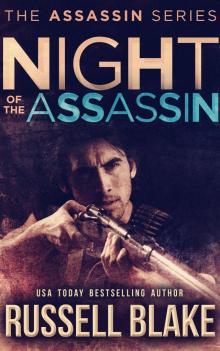 Night of the Assassin
Night of the Assassin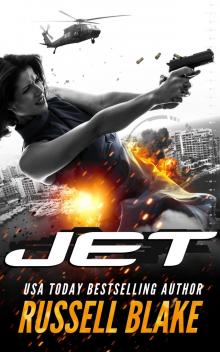 Jet
Jet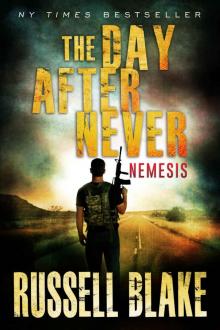 The Day After Never - Nemesis (Post-Apocalyptic Dystopian Thriller - Book 9)
The Day After Never - Nemesis (Post-Apocalyptic Dystopian Thriller - Book 9)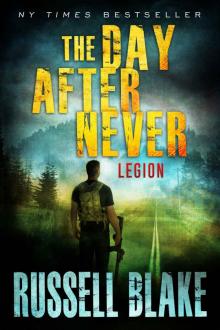 The Day After Never - Legion (Post-Apocalyptic Dystopian Thriller - Book 8)
The Day After Never - Legion (Post-Apocalyptic Dystopian Thriller - Book 8)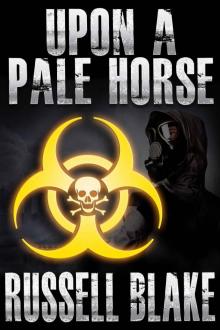 Upon A Pale Horse (Bio-Thriller)
Upon A Pale Horse (Bio-Thriller)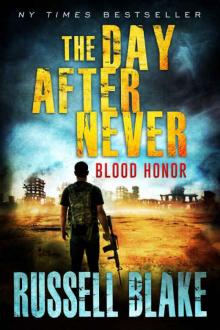 The Day After Never (Book 1): Blood Honor
The Day After Never (Book 1): Blood Honor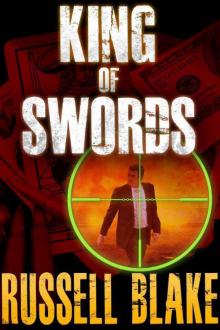 King of Swords a-1
King of Swords a-1 The Day After Never Bundle (First 4 novels)
The Day After Never Bundle (First 4 novels)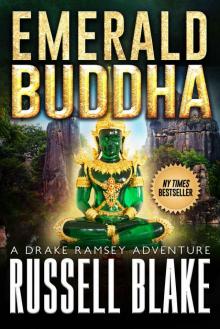 Emerald Buddha (Drake Ramsey Book 2)
Emerald Buddha (Drake Ramsey Book 2) BLACK to Reality
BLACK to Reality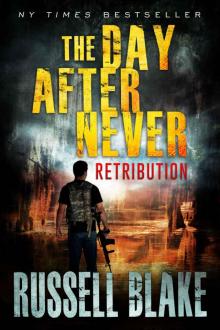 The Day After Never - Retribution (Post-Apocalyptic Dystopian Thriller - Book 4)
The Day After Never - Retribution (Post-Apocalyptic Dystopian Thriller - Book 4)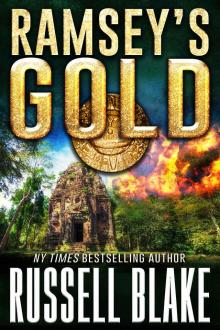 Ramsey's Gold (Drake Ramsey Book 1)
Ramsey's Gold (Drake Ramsey Book 1)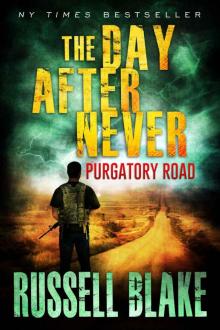 The Day After Never (Book 2): Purgatory Road
The Day After Never (Book 2): Purgatory Road JET - Ops Files
JET - Ops Files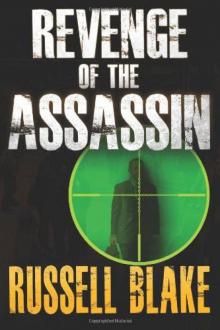 Revenge of the Assassin a-2
Revenge of the Assassin a-2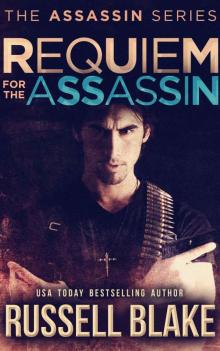 Requiem for the Assassin - 06
Requiem for the Assassin - 06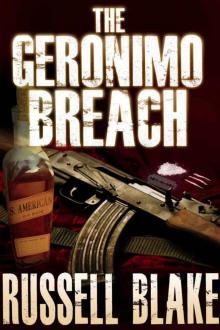 The Geronimo Breach
The Geronimo Breach Sahara
Sahara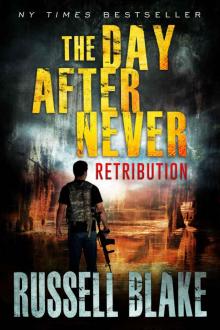 The Day After Never (Book 4): Retribution
The Day After Never (Book 4): Retribution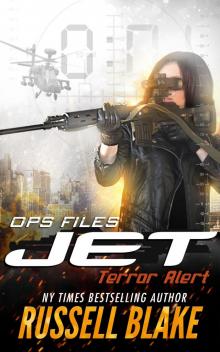 Ops Files II--Terror Alert
Ops Files II--Terror Alert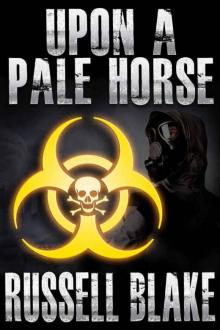 Upon A Pale Horse
Upon A Pale Horse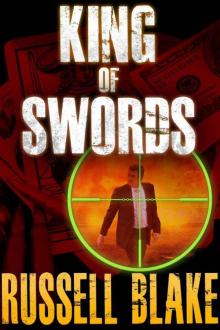 King of Swords (Assassin series #1)
King of Swords (Assassin series #1) A Girl Apart
A Girl Apart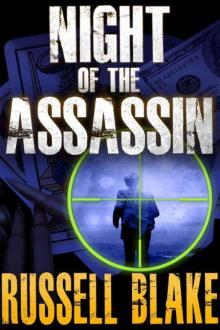 Night of the Assassin: Assassin Series Prequel
Night of the Assassin: Assassin Series Prequel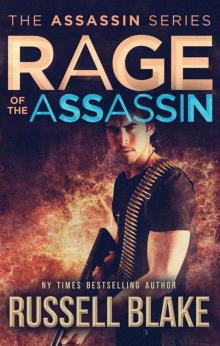 Rage Of The Assassin
Rage Of The Assassin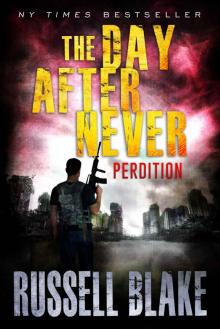 The Day After Never - Perdition (Book 6)
The Day After Never - Perdition (Book 6)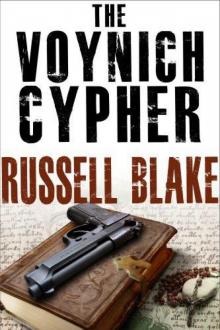 The Voynich Cypher
The Voynich Cypher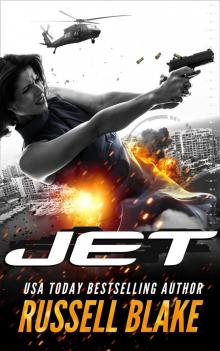 JET, no. 3
JET, no. 3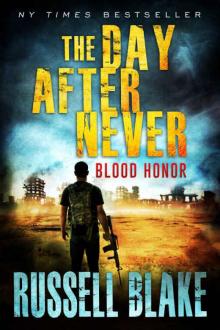 The Day After Never - Blood Honor (Post-Apocalyptic Dystopian Thriller)
The Day After Never - Blood Honor (Post-Apocalyptic Dystopian Thriller) 9 More Killer Thrillers
9 More Killer Thrillers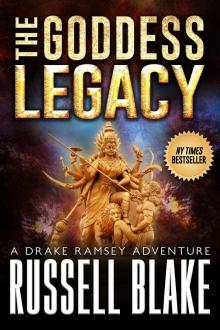 The Goddess Legacy
The Goddess Legacy Fatal Exchange
Fatal Exchange Fatal Exchange (Fatal Series Book 1)
Fatal Exchange (Fatal Series Book 1)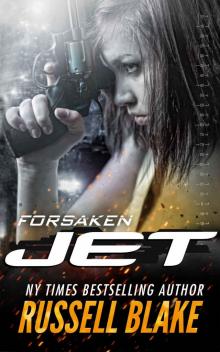 JET - Forsaken
JET - Forsaken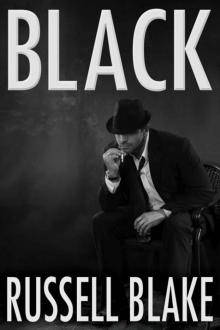 Black
Black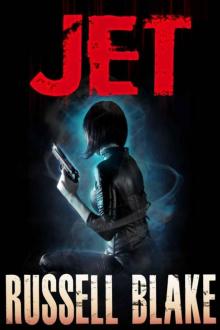 Jet j-1
Jet j-1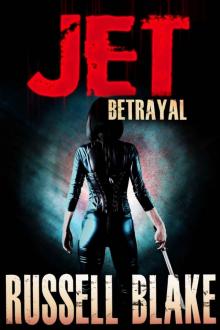 Betrayal j-2
Betrayal j-2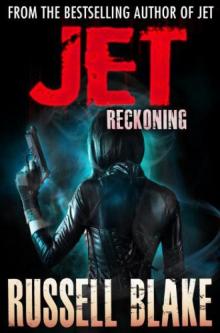 Jet 04: Reckoning
Jet 04: Reckoning Jet 03: Vengeance
Jet 03: Vengeance Fatal Deception
Fatal Deception A Girl Betrayed (A Leah Mason suspense thriller Book 2)
A Girl Betrayed (A Leah Mason suspense thriller Book 2)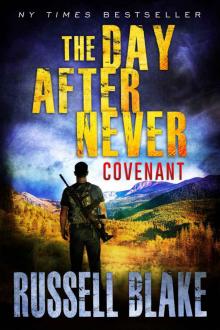 The Day After Never - Covenant (Post-Apocalyptic Dystopian Thriller - Book 3)
The Day After Never - Covenant (Post-Apocalyptic Dystopian Thriller - Book 3)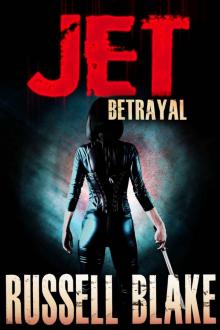 JET II - Betrayal (JET #2)
JET II - Betrayal (JET #2)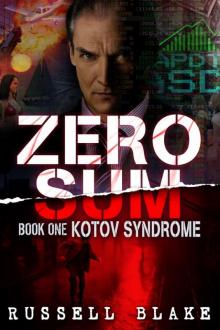 Zero Sum, Book One, Kotov Syndrome
Zero Sum, Book One, Kotov Syndrome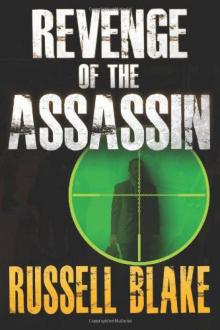 Revenge of the Assassin
Revenge of the Assassin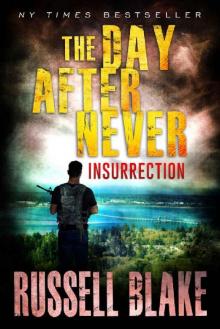 The Day After Never - Insurrection (Book 5)
The Day After Never - Insurrection (Book 5)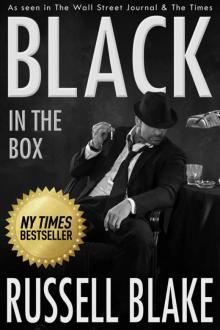 BLACK in the Box
BLACK in the Box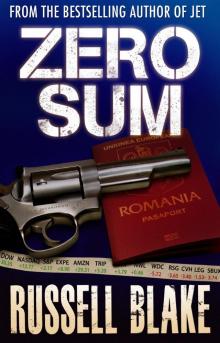 Zero Sum
Zero Sum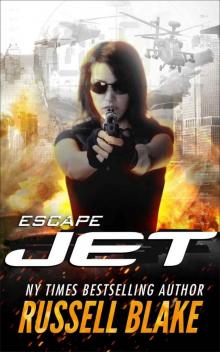 JET - Escape: (Volume 9)
JET - Escape: (Volume 9)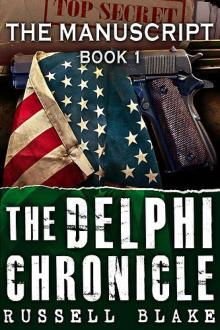 The Manuscript
The Manuscript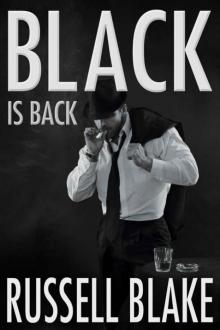 BLACK Is Back
BLACK Is Back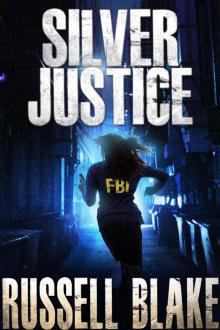 Silver Justice
Silver Justice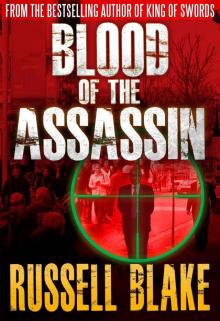 Blood of the Assassin
Blood of the Assassin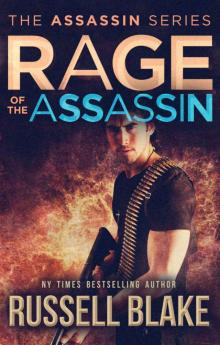 Rage of the Assassin: (Assassin Series #6)
Rage of the Assassin: (Assassin Series #6)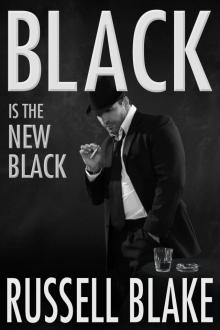 BLACK Is the New Black
BLACK Is the New Black